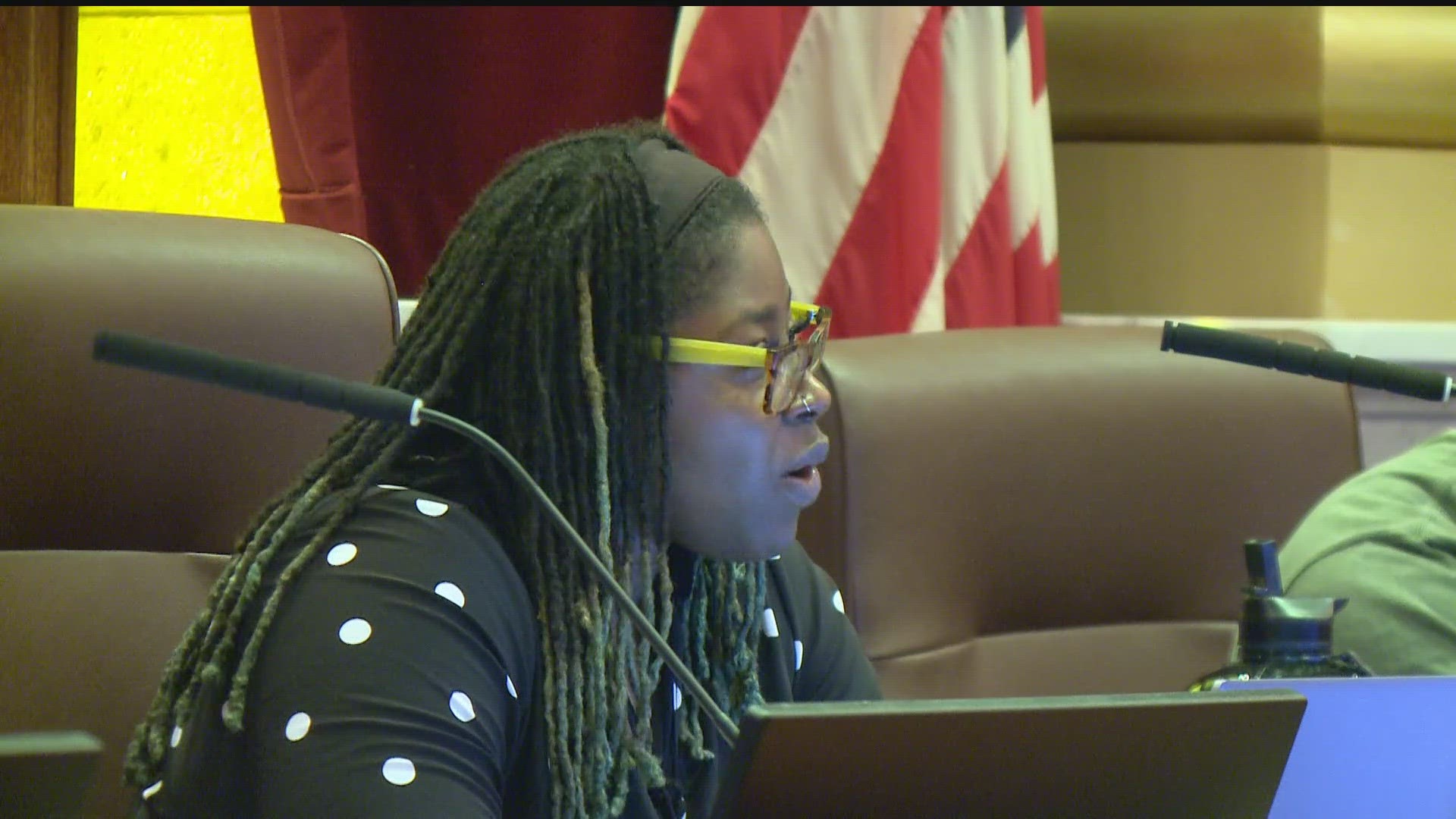MINNEAPOLIS — According to public crime data from the Minneapolis Police Department, several types of crime are on the rise and others are declining this year compared to last year at this time.
The dashboard shows vehicle theft is up 69.7%, destruction is up 21.9%, stolen property is up 8.3%, sex offenses are up 7.5%, weapon law violations are up 5.9% and assault is up 4%.
Meanwhile, carjackings are down 46%, gunshot wound victims are down 36.2%, homicides are down 34.8%, shots fired calls are down 29.5%, robbery is down 23.7%, non-vehicle theft is down 21.8%, burglary is down 7.7% and domestic assault is down 1.6%.
Some of the people who work to improve the statistics and save lives are now sharing their perspectives in response to a Harvard University report released Tuesday regarding Minneapolis public safety.
The 143-page Minneapolis Safe and Thriving Communities Report can be summed up in two words: more collaboration.
Dr. Antonio Oftelie, who grew up in south Minneapolis and now leads Harvard University's Leadership for a Networked World, presented the plan to the council's public health and safety committee Wednesday. He recommended an "ecosystem" of police, public health and human services to respond to community needs with an emphasis on the following services:
- Preventative services: diversion, intervention, violence prevention
- Responsive services: virtual services, community response, and multi-disciplinary response
- Restorative services: trauma recovery and community resilience program
Committee members Jeremiah Ellison, Elliot Payne, and Robin Wonsley told Oftelie many of the report's recommendations mirror measures the full city council previously failed to pass.
"It's sad that it took the credentialed Harvard report to be like 'Well maybe tens of years, decades of years, Black people were right. Brown people were right about what we need for our public safety system,'" said Wonsley, who represents Ward 2.
Community groups sticking around to the end of the hours-long meeting told KARE 11 they are mostly optimistic about the plan.
"I've shared their frustration of, like, they've seen this for a long time," Howie Dotson, found of the Twin Cities Crisis Response Team said. "There's folks overdosing in that one parking lot, Merwin Liquor, Lyndale and Broadway, 14 overdoses in one location. That was last September. For 10 months we've been asking for opiate settlement money to be dispersed and committed to give free NARCAN out in the community.
"This road map will help us and it's going to take community partnering," he continued. "This roadmap is going to help with some of the healing and reconciliation."
"I really like the idea of this co-responder model," Latonya Reeves, chair of Minnesota Civilian Public Safety Commission said. "We're getting better with that and the fact that we have the 311. People can use that within the city limits and they can call outside of the city limits with a different number. They're really saying okay we have different responses."
"I do believe more collaboration is needed," she continued. "The people that are in the community are the ones that know the community best and so the city partners, the enterprise need to really work with those people that are boots on the ground."
While some optimism and urgency seem present, Oftelie rated the city's financial readiness to implement the recommendations a five out of 10. He said city executives need to bring an investment plan to the council as soon as possible and said that's how to know whether the city wants to move forward.
In a press conference Tuesday just before the report was made public, Minneapolis Mayor Jacob Frey said he supports the plan and said an influx of additional money will be needed to the tune of millions of dollars.
"This comes at a perfect time because we are on the verge of this budget process for 2024," Frey said. "In the immediacy, we can look to how some of these recommendations will fit into this next year's budget."
The Harvard study cost $400,000 and was primarily funded by philanthropists.
Watch more local news:
Watch the latest local news from the Twin Cities and across Minnesota in our YouTube playlist:

